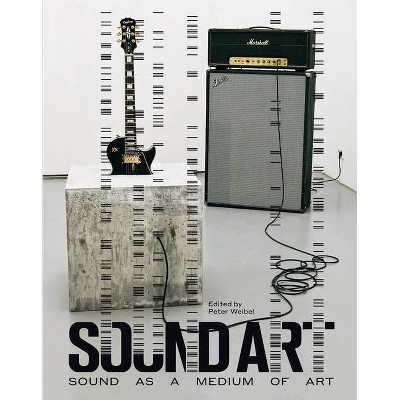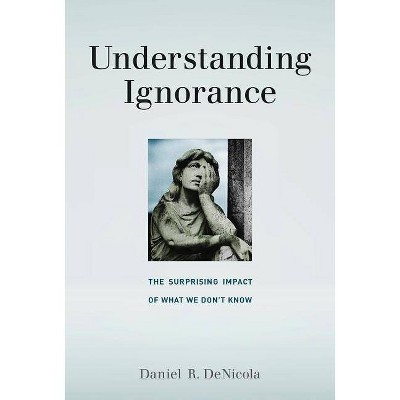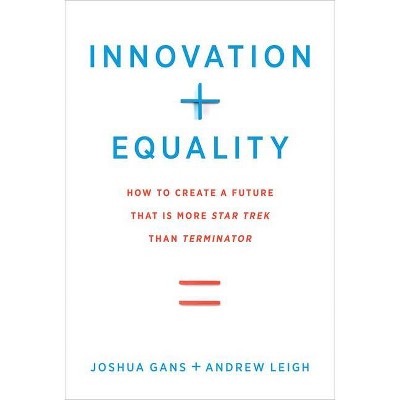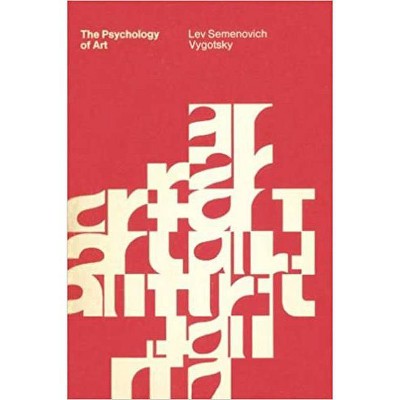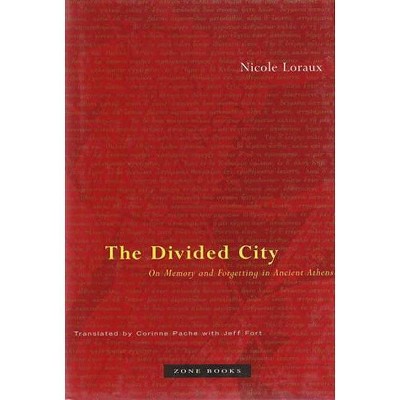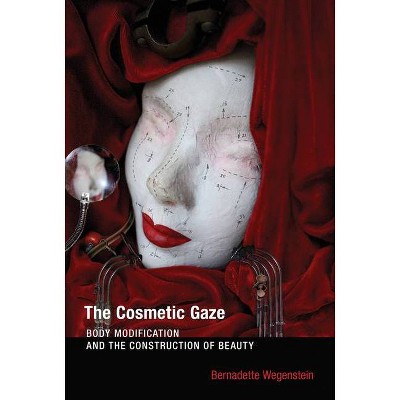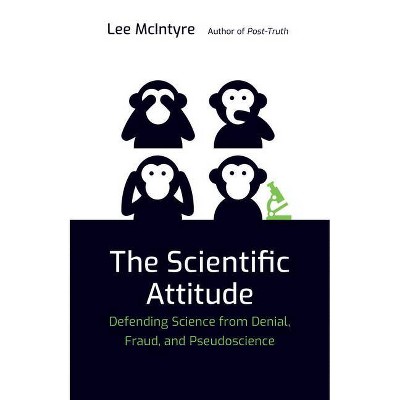Understanding the Art of Sound Organization - (Mit Press) by Leigh Landy (Paperback)
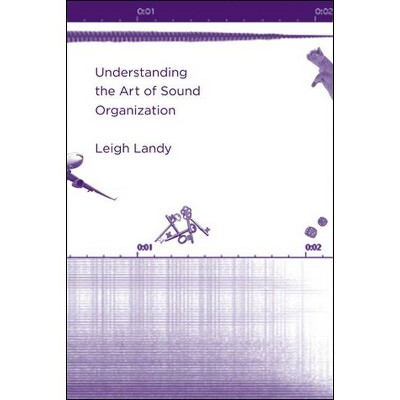
Similar Products
Products of same category from the store
AllProduct info
<p/><br></br><p><b> About the Book </b></p></br></br>The first work to propose a comprehensive musicological framework to study sound-based music, a rapidly developing body of work that includes electroacoustic art music, turntable composition, and acoustic and digital sound installations.<p/><br></br><p><b> Book Synopsis </b></p></br></br><b>The first work to propose a comprehensive musicological framework to study sound-based music, a rapidly developing body of work that includes electroacoustic art music, turntable composition, and acoustic and digital sound installations.</b><p>The art of sound organization, also known as electroacoustic music, uses sounds not available to traditional music making, including prerecorded, synthesized, and processed sounds. The body of work of such sound-based music (which includes electroacoustic art music, turntable composition, computer games, and acoustic and digital sound installations) has developed more rapidly than its musicology. Understanding the Art of Sound Organization proposes the first general foundational framework for the study of the art of sound organization, defining terms, discussing relevant forms of music, categorizing works, and setting sound-based music in interdisciplinary contexts. Leigh Landy's goal in this book is not only to create a theoretical framework but also to make the work more accessible--to suggest a way to understand sound-based music, to give a listener what he terms "something to hold on to," for example, by connecting elements in a work to everyday experience. Landy considers the difficulties of categorizing works and discusses such types of works as sonic art and electroacoustic music, pointing out where they overlap and how they are distinctive. He proposes a "sound-based music paradigm" that transcends such traditional categories as art and pop music. Landy defines patterns that suggest a general framework and places the studies of sound-based music into interdisciplinary contexts, from acoustics to semiotics, proposing a holistic research approach that considers the interconnectedness of a given work's history, theory, technological aspects, and social impact. </p><p>The author's ElectroAcoustic Resource Site (EARS, www.ears.dmu.ac.uk), the architecture of which parallels this book's structure, offers updated bibliographic resource abstracts and related information.</p><p/><br></br><p><b> Review Quotes </b></p></br></br><br>"Landy expertly charts the complex world of sound-based (as distinct from note-based) music in all its contemporary forms, visiting its major continents as well as exotic islands en route. Supported by the EARS website, he proposes a scholarly framework for understanding innovative work in this area, and provocatively calls for increased attention to listener reception, the accessibility and dramaturgy of such works, and their valorization as organized sound art forms."--Barry Truax, School of Communication, and School for the Contemporary Arts, Simon Fraser University<br><br>"Leigh Landy's book is more than a book. It's an illuminating exploration of a new world of sound. He begins by defining 'sound-based music' as any type of music that uses sounds (instead of notes) as its basic material. He then looks at sound-based music from two complementary perspectives: the intent of the composer and the receptivity of the listener. His lucid discussions of composers' intent, largely centered in "musique concrete, " are in themselves well worth the purchase of the book. His discussions of listeners' receptivity are provocative and fascinating. It's worth noting that the book is linked in its concerns and structure to the EARS (ElectroAcoustic Resource Site) website that Landy supervises, and that the website - www.ears.dmu.ac.uk - provides an ongoing and invaluable knowledge resource for anyone interested in electronic music."--Joel Chadabe, Founder and President, Electronic Music Foundation<br><br>"The contribution of Leigh Landy to the understanding of recent developments in music technology is paramount. Landy's thoughts on electroacoustic music address the essence of this musical genre. This book is a captivating read for those of us who appreciate navigating the sea of new sounds."--Marc Battier, Professor of Musicology, University Paris-Sorbonne<br><br>" Landy expertly charts the complex world of sound-based (as distinct from note-based) music in all its contemporary forms, visiting its major continents as well as exotic islands en route. Supported by the EARS website, he proposes a scholarly framework for understanding innovative work in this area, and provocatively calls for increased attention to listener reception, the accessibility and dramaturgy of such works, and their valorization as organized sound art forms." -- Barry Truax, School of Communication, and School for the Contemporary Arts, Simon Fraser University<br><br>" Leigh Landy's book is more than a book. It's an illuminating exploration of a new world of sound. He begins by defining 'sound-based music' as any type of music that uses sounds (instead of notes) as its basic material. He then looks at sound-based music from two complementary perspectives: the intent of the composer and the receptivity of the listener. His lucid discussions of composers' intent, largely centered in musique concr& egrave; te, are in themselves well worth the purchase of the book. His discussions of listeners' receptivity are provocative and fascinating. It's worth noting that the book is linked in its concerns and structure to the EARS (ElectroAcoustic Resource Site) website that Landy supervises, and that the website - www.ears.dmu.ac.uk - provides an ongoing and invaluable knowledge resource for anyone interested in electronic music." -- Joel Chadabe, Founder and President, Electronic Music Foundation<br><br>" The contribution of Leigh Landy to the understanding of recent developments in music technology is paramount. Landy's thoughts on electroacoustic music address the essence of this musical genre. This book is a captivating read for those of us who appreciate navigating the sea of new sounds." -- Marc Battier, Professor of Musicology, University Paris-Sorbonne<br><br>" The contribution of Leigh Landy to the understanding of recent developments in music technology is paramount. Landy's thoughts on electroacoustic music address the essence of this musical genre. This book is a captivating read for those of us who appreciate navigating the sea of new sounds." --Marc Battier, Professor of Musicology, University Paris-Sorbonne<br><br>" Landy expertly charts the complex world of sound-based (as distinct from note-based) music in all its contemporary forms, visiting its major continents as well as exotic islands en route. Supported by the EARS website, he proposes a scholarly framework for understanding innovative work in this area, and provocatively calls for increased attention to listener reception, the accessibility and dramaturgy of such works, and their valorization as organized sound art forms." --Barry Truax, School of Communication, and School for the Contemporary Arts, Simon Fraser University<br><br>" Leigh Landy's book is more than a book. It's an illuminating exploration of a new world of sound. He begins by defining 'sound-based music' as any type of music that uses sounds (instead of notes) as its basic material. He then looks at sound-based music from two complementary perspectives: the intent of the composer and the receptivity of the listener. His lucid discussions of composers' intent, largely centered in "musique concrè te," are in themselves well worth the purchase of the book. His discussions of listeners' receptivity are provocative and fascinating. It's worth noting that the book is linked in its concerns and structure to the EARS (ElectroAcoustic Resource Site) website that Landy supervises, and that the website - www.ears.dmu.ac.uk - provides an ongoing and invaluable knowledge resource for anyone interested in electronic music." --Joel Chadabe, Founder and President, Electronic Music Foundation<br><p/><br></br><p><b> About the Author </b></p></br></br><p>Leigh Landy is a composer and scholar. He is Director of the Music, Technology, and Innovation Research Centre at De Montfort University, U.K.</p>
Price History
Cheapest price in the interval: 30.49 on March 10, 2021
Most expensive price in the interval: 30.49 on May 23, 2021
Price Archive shows prices from various stores, lets you see history and find the cheapest. There is no actual sale on the website. For all support, inquiry and suggestion messagescommunication@pricearchive.us
